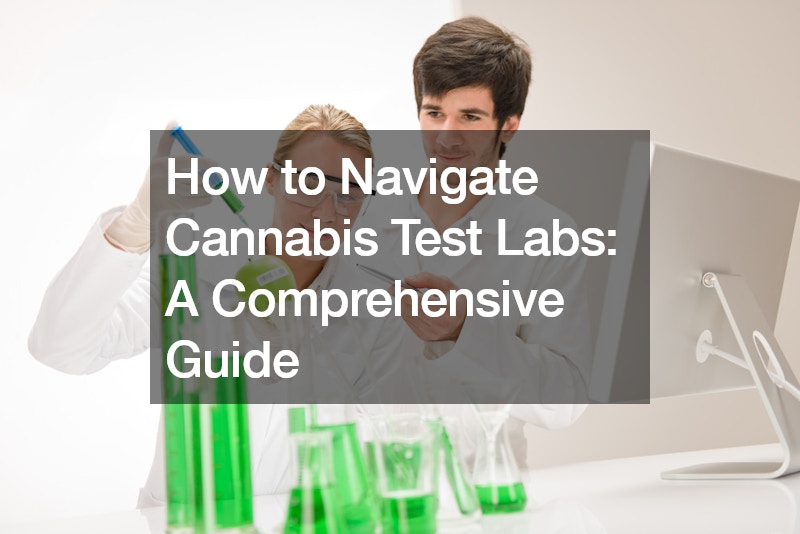The US cannabis industry is experiencing explosive growth, with new regulations and testing requirements emerging at a rapid pace. For those navigating this dynamic market, ensuring the safety and quality of cannabis products is paramount. This extends beyond cultivation and processing – independent cannabis testing labs play a critical role in safeguarding consumers and fostering industry growth. Whether you’re a producer, processor, retailer, or simply a curious consumer, this comprehensive guide empowers you to understand the world of cannabis testing labs and navigate it effectively. In the following sections, we’ll delve into the significance of cannabis testing, explore the different types of testing labs operating in the US, and equip you with the knowledge to choose the right lab partner for your needs.
We’ll also explore emerging trends in cannabis testing and what the future holds for this crucial aspect of the industry.
Why is Cannabis Testing Important? Cannabis testing plays a vital role in ensuring the safety and quality of cannabis products for both consumers and businesses. Here are some key reasons why testing is essential:
Consumer Safety: Testing identifies potential contaminants like pesticides, heavy metals, and mycotoxins, ensuring consumers are not exposed to harmful substances. Potency Analysis: Testing determines the levels of cannabinoids like THC, CBD, and other compounds, allowing for accurate labeling and consistent product experiences for consumers. Quality Control: Testing helps producers and processors maintain consistent product quality by identifying any inconsistencies in cannabinoid profiles or the presence of impurities. Regulatory Compliance: Meeting state-mandated testing requirements is essential for businesses to operate legally and avoid potential penalties. Understanding the Types of Cannabis Testing Labs (US) In the US, cannabis testing labs fall under two primary categories:
Accredited Labs: These labs adhere to rigorous quality standards set by independent accreditation bodies. Accreditation ensures the lab employs qualified personnel, utilizes validated testing methods, and maintains accurate equipment calibration. Non-Accredited Labs: These labs may offer testing services, but they haven’t undergone the same level of scrutiny as accredited labs. While some non-accredited labs may provide reliable results, accreditation offers an additional layer of trust and ensures adherence to industry best practices. Choosing the Right Cannabis Testing Lab (US):
Selecting the right cannabis test labs are vital for both quality assurance and regulatory compliance. Here are some key factors to consider:
Accreditation: Opt for an accredited lab to ensure the highest level of reliability and adherence to industry standards. Testing Capabilities: Choose a lab that offers the specific tests required by your state and tailored to your product needs. Common tests include cannabinoid potency, terpene profiling, microbial contamination, pesticide residue analysis, and heavy metal testing. Turnaround Time: Consider the lab’s turnaround time for test results. This is crucial for businesses that need timely information to maintain their production or retail operations. Cost: Lab testing fees can vary depending on the number and type of tests required. Obtain quotes from several labs to compare pricing and services offered. Customer Service: Choose a lab with responsive customer service that can answer your questions, address concerns, and provide clear explanations of test results. Location: Consider the lab’s location relative to your business operations. Proximity can impact sample transportation costs and turnaround times. Additional Tips for Working with Cannabis Testing Labs:
Establish a Clear Communication Channel: Maintain open communication with the lab regarding testing requirements, deadlines, and any special considerations. Provide Accurate Information on Samples: Ensure proper labeling and documentation of your cannabis samples submitted for testing. Review Test Results Thoroughly: Understand the meaning of the test results and ask the lab for clarification if needed. Maintain Records of Testing: Keep a detailed record of all your cannabis testing results for compliance purposes and future reference. The Future of Cannabis Testing (US) As the cannabis industry matures, testing is likely to become even more sophisticated. Here are some potential trends to watch:
Standardization of Testing Procedures: Efforts are underway to establish more uniform testing standards across different US states, ensuring greater consistency in test results. Advanced Testing Methods: Emerging technologies may lead to faster, more accurate, and cost-effective testing methods in the future. Focus on Additional Analytes: Testing may expand beyond traditional cannabinoids and contaminants to include a wider range of compounds that might impact product quality and safety. Conclusion
Navigating the world of cannabis testing labs can seem complex, but understanding the importance of testing, the different lab types, and key selection criteria empowers businesses and consumers to make informed decisions. By partnering with a reputable, accredited lab, you can ensure the safety, quality, and regulatory compliance of your cannabis products in the ever-evolving US cannabis market.
Disclaimer: This information is for educational purposes only and should not be interpreted as legal or medical advice. Always consult with a qualified professional for cannabis-related regulations and testing requirements specific to your state.
.





